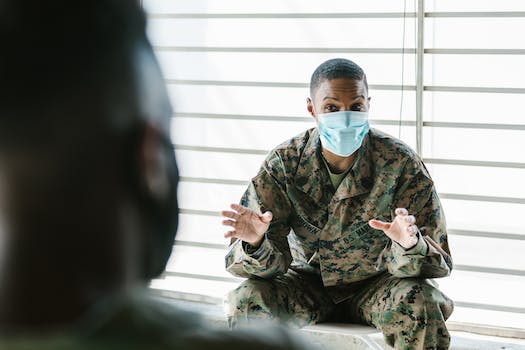
Unmasking the Silent Battle: Understanding and Addressing PTSD in Black Veterans
The Unseen Battle: Addressing PTSD in Black Veterans
The Unseen Battle: Addressing PTSD in Black Veterans
The Hidden Struggles of Black Veterans
As we reflect on another Veterans Day, our hearts swell with gratitude for the brave men and women who've donned the uniform and faced unimaginable horrors on our behalf. Among these heroes, there's a group whose struggles often remain hidden in the shadows: Black veterans battling Post-Traumatic Stress Disorder (PTSD).
PTSD, a mental health condition triggered by experiencing or witnessing a terrifying event, is not uncommon among veterans. However, the rate of PTSD among Black veterans is significantly higher than their counterparts. Why is this so, and what can we do about it?
The Double-Edged Sword of Racial Trauma and Combat Exposure
Black veterans face an additional layer of stress and trauma caused by systemic racism, both in and out of the military. This racial trauma can exacerbate the effects of PTSD, making it more difficult to cope and recover.
Imagine the strain of serving in a war zone, only to return home to another kind of battlefield where your skin color makes you a target. It's an endless cycle of stress and trauma for many Black veterans.
The Stigma of Mental Health in the Black Community
The stigma associated with mental health in the Black community often prevents Black veterans from seeking help. They're expected to be strong, to bear their burdens silently. This cultural expectation, coupled with a lack of trust in the healthcare system, creates a barrier to treatment.
Disparities in Healthcare
Black veterans are less likely to receive adequate mental health care compared to their white counterparts. This disparity is driven by a mix of factors, including unconscious bias in healthcare, lack of culturally competent care, and systemic racism within the healthcare system.
How Can We Support Black Veterans Battling PTSD?
Acknowledging and Addressing Racial Trauma
First, we need to create safe spaces where Black veterans can share their experiences without fear of judgment or retribution. We must also advocate for systemic changes to eliminate racial disparities in the military and society at large.
Breaking the Stigma Surrounding Mental Health
We need to start open conversations about mental health in the Black community. Let our Black veterans know that it's okay to seek help, that strength is not synonymous with silence.
Addressing Healthcare Disparities
Lastly, we need to advocate for policies that ensure equal access to quality mental health care for all veterans, regardless of race. We must train healthcare providers to be culturally competent and aware of their biases.
Conclusion
PTSD in Black veterans is a complex issue that requires a multi-faceted approach. It's an unseen battle that these heroes fight long after they've left the battlefield. As a society, it's our duty to support them, to stand up for them, and to ensure they have the resources they need to heal.
Remember, these brave men and women fought for us. Now, it's our turn to fight for them.
